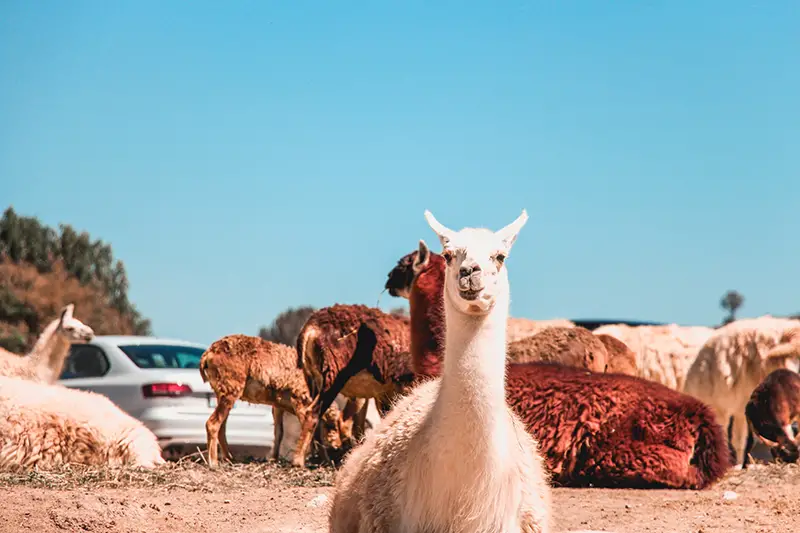Click here to get this post in PDF
Why choose alpacas?
Alpacas can provide an income source due to fleece production and breeding. In both Europe and the UK breeders can generate an income from breeding these animals, and then selling them for commercial gain. In the UK, the alpaca industry is working towards the status of a fibre industry.
Of course, commercial gain is not the only reason to keep alpacas. They are also useful animals to cut the grass on a farm. Some companies offer ‘alpaca experiences’ which gives people the chance to come and meet alpacas for the day. Alpaca experiences are particularly popular for children’s parties. When you’re thinking about starting an alpaca farm, these considerations might come in handy. If you are looking to own alpaca as a pet then you need to learn what do they eat and how to take care of them. Keeping an alpaca as a pet requires considerable responsibility.
1. Visit local farms
If you’re considering setting up an alpaca farm, it’s a good idea to visit a few farms in your local area. You’ll want to familiarize yourself with the daily operations of a farm and ask any questions you have. As well as this, you might want to visit alpaca shows. Not only are alpaca shows a fun experience, but you’ll learn a thing or two from the judges’ comments!
2. Research alpacas
As well as visiting local farms you’ll need to research alpacas. You should find out what to look for in a quality alpaca, and how to best take care of these animals. When you’re purchasing your first alpacas, ensure that the alpacas have a good structure and shape. When you are buying alpacas, talk to the breeders about their bloodlines, to make sure you are getting reliable as stock. It’s also important that you choose alpacas with good quality fleece. You’ll want animals that produce bright and soft fleece.
3. Draw up your business plan
Once you’ve learned a little something about alpacas, start creating a business plan. When you write up your plan you’ll need to include elements such as sheering, health processes, vaccinations, and the breeding location.
Your business plan should include a description of your proposed company, followed by a detailed market analysis. Include competitor research, trends in the market, and define your unique selling point. When you’re starting your own business, it’s important that you thoroughly understand the market. A business plan should also include details such as your marketing strategy, your pricing, and management.
4. Choose the right breeder
When you’re choosing your first alpacas, you’ll need to find the best breeder to work with. Choose a breeder with plenty of experience, who can support you in your new venture. To find out more information, take a look at this website. Charnwood Forest Alpacas, can answer all of your alpaca-related questions. With the right breeder, you’ll get yourself off to a great start, with the best quality animals.
When you’re approaching any business venture, it’s important to take your time with the planning processes. Evaluate your performance over time, to identify your strengths and weaknesses.
You may also like: 7 Quick Tips to Grow Your Startup
Image source: Pexels.com

